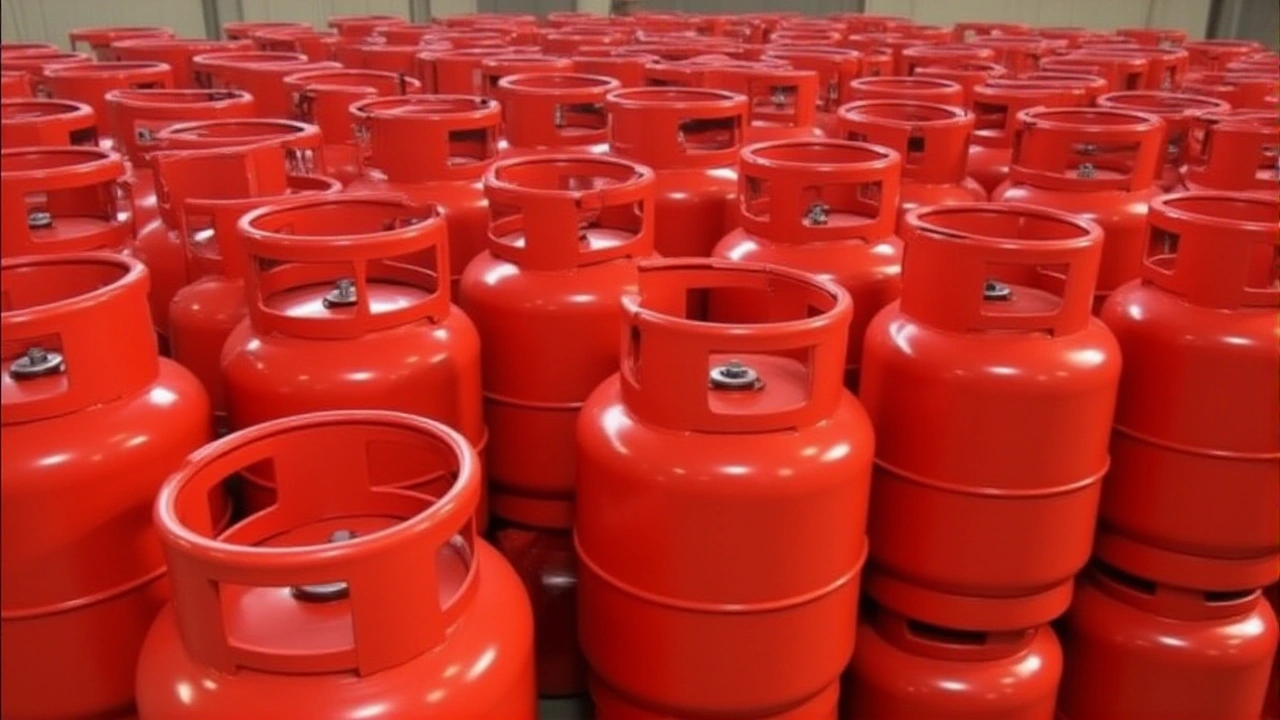
Nigeria’s Top 10 States Face Sky‑High LPG Prices in April 2025
Nigeria's LPG prices soar, with Enugu at N20,990.52 per cylinder in April 2025 and Lagos hitting N25,000 in October, straining households nationwide.
When talking about LPG prices, the cost per kilogram of liquefied petroleum gas that households and businesses pay for cooking, heating or transport. Also known as liquefied petroleum gas pricing, it reflects a mix of global oil trends, local tax policies and distribution costs.
The liquefied petroleum gas, a by‑product of natural gas processing and crude oil refining is the core commodity behind the numbers you see on the pump. Its market price is tightly linked to the energy market, the broader system of production, trading and regulation of fuels. When crude oil climbs, LPG often follows – a classic cause‑effect relationship. At the same time, government subsidies or taxes act as modifiers; a tax hike can push the retail price up by several cents, while a subsidy can pull it back down.
Consumers feel the impact in three ways: household bills, small‑business operating costs, and transport fuel expenses. For a typical South African family, a 10 % rise in LPG can mean an extra R150‑R200 per month on cooking fuel alone. Small retailers report tighter margins when distribution fees rise, forcing some to cut back on stock. Even the logistics sector notices higher haulage costs, which can ripple into the price of goods delivered by road.
Understanding these dynamics helps you anticipate price swings. If the global oil price index spikes, expect LPG prices to follow within weeks – the market’s price transmission lag is short. Conversely, when the government announces a temporary subsidy, the retail price often drops almost immediately, because retailers adjust their invoices in real time. Monitoring the national fuel price regulator’s bulletins gives you a heads‑up on upcoming changes.
Beyond the immediate cost, LPG prices intersect with environmental and economic goals. Cleaner‑burning LPG reduces indoor air pollution compared to coal or wood, supporting public‑health objectives. However, higher prices can discourage uptake, slowing progress on emission targets. Policymakers therefore balance price stability with incentives for greener fuel adoption.
Below you’ll find a curated set of articles that unpack recent price movements, explain how subsidies are calculated, and offer practical tips for managing your fuel budget. Whether you’re a homeowner, a small business owner, or just curious about the energy landscape, the stories ahead give you the context you need to make informed decisions about LPG prices.

Nigeria's LPG prices soar, with Enugu at N20,990.52 per cylinder in April 2025 and Lagos hitting N25,000 in October, straining households nationwide.